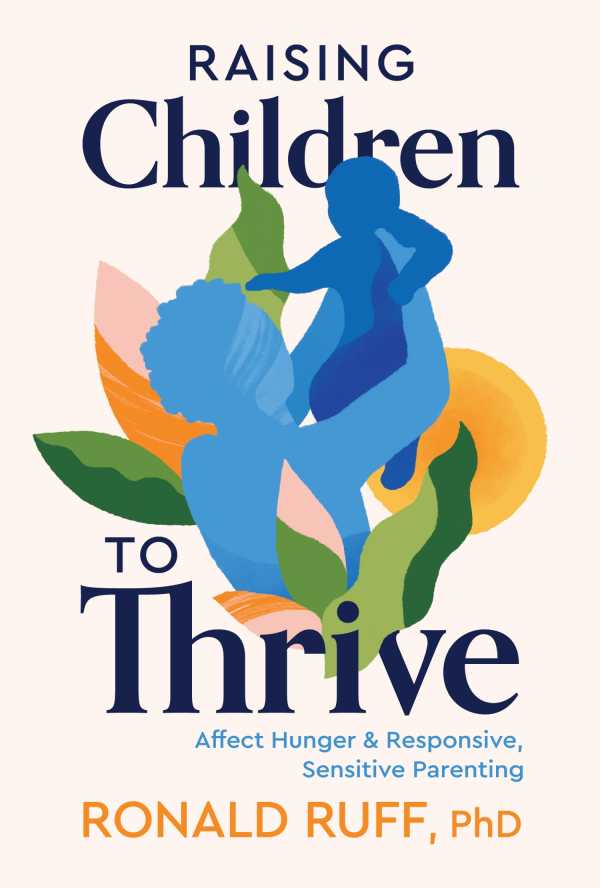Raising Children to Thrive
Affect Hunger and Responsive, Sensitive Parenting
Raising Children to Thrive is a careful parenting guide with advice for fostering positive social and emotional childhood development.
Personal and constructive, psychotherapist and forensic neuropsychologist Ronald Ruff’s parenting guide Raising Children to Thrive addresses the difficult task of maintaining a child’s well-being.
Referencing an argument that “there’s nothing new under the sun in psychology … the Greek philosophers said it all centuries ago,” this book asserts that intersubjectivity and neuroscience have in fact replaced the centuries-long adherence to the belief in the Cartesian self, which is “solipsistic and cannot know other minds.” With the idea that people can infer and understand other people’s mental states to predict their behavior, it goes on to say that “parenting a psychologically healthy child … requires all of our resources.”
Discussing and compiling the arguments and findings of multiple historical figures, including Carl Rogers and Martin Buber, the book draws comparisons between extant theses to the extent that such inquiries take up more room than its own original ideas. The sympathetic argument that most parents are going moment by moment without adequate training is somewhat dwarfed in the process. Still, a lengthy discussion of three central concepts—affect hunger; responsive, sensitive parenting; and intersubjectivity—distinguishes its work somewhat.
The book also delves into four core elements of dialogue: turning, addressing, listening, and responding. Topical case studies embellish these examinations, analyzing a child’s upbringing and environment and their mental state before discussing the aftermath of their visits with psychologists and showing what about their situations illustrates the need for informed, capable caregivers. This pattern remains consistent throughout the book, making a complicated, controversial topic feel more accessible.
Pop cultural references give the book some additional flavor, as with a Simon and Garfunkel song, “Richard Cory,” about the inability to grasp someone’s true feelings, and with a quote from Superman, in which Jor-El says to his son Kal-El: “You will make my strength your own… . The son becomes the father, and the father, the son.” While such forays are fun, more helpful are the book’s passages dedicated to “mind-mindedness,” or a caregiver’s tendency to view their child as an individual with a mind, instead of an entity with needs to be satisfied. One useful exercise suggests learning each child’s cues and features to better tune into what they are thinking and feeling.
The culmination of a psychologist’s life’s work, Raising Children to Thrive is a careful parenting guide with advice for fostering positive social and emotional childhood development.
Reviewed by
Stephanie Marrie
Disclosure: This article is not an endorsement, but a review. The publisher of this book provided free copies of the book and paid a small fee to have their book reviewed by a professional reviewer. Foreword Reviews and Clarion Reviews make no guarantee that the publisher will receive a positive review. Foreword Magazine, Inc. is disclosing this in accordance with the Federal Trade Commission’s 16 CFR, Part 255.


